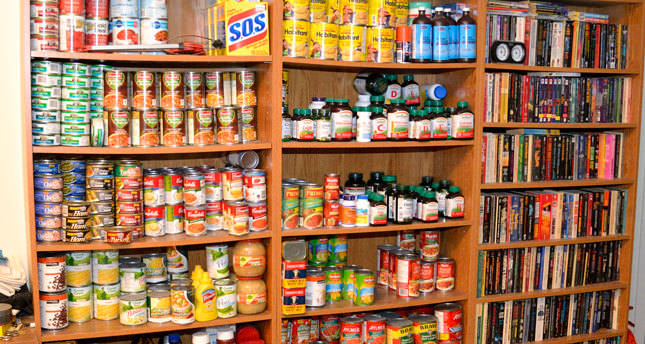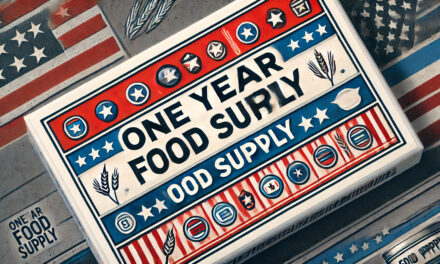Surviving a famine or food shortage takes preparation, resourcefulness, and a clear understanding of how to build a reliable food supply. When food runs out, communities face hard decisions. Let’s look at how to keep yourself and your loved ones secure in times of crisis.
The Importance of Food Security
Food security is the foundation of survival. When shelves are empty, money isn’t enough to guarantee a meal. Real food security means having enough nutritious food stored and knowing it will last. A sudden food shortage or supply chain disruption could leave people in dire need. By building up an emergency food supply, you’re one step closer to self-sufficiency.
Begin with non-perishable items, such as canned meats, dried beans, and grains. These items don’t spoil easily, giving you peace of mind. Rotate your supplies regularly, using the oldest items first. Storing food wisely is just as critical as choosing the right kinds.
Stocking an Emergency Food Supply
An emergency food supply should cover essential nutrients and offer variety. A supply with canned goods, dried vegetables, pasta, and rice will be versatile and filling. Include high-protein foods and sources of healthy fats. Think about items that don’t require refrigeration or complex preparation methods.
To calculate your needs, consider how many people you’re preparing for and how long your stockpile must last. Begin by setting a target of one to two weeks, then build up to months. If your pantry looks like it could support you for three months, you’re on the right track.
Don’t forget water! Without clean water, even the best stockpile will be useless. Keep a separate supply of bottled or purified water for cooking and drinking. Aim for at least a gallon per person per day. Remember that water is essential to food security, especially in times of scarcity.
Building a Self-Sustaining System
For those serious about long-term survival, a self-sustaining food system is the ultimate goal. This might mean growing your own food, even if it’s just a few vegetables on a windowsill. Starting a small garden, even indoors, can yield fresh produce year-round and ease dependence on store-bought goods. Leafy greens, tomatoes, and herbs are ideal for beginners. They grow fast and don’t require much space.
Consider preservation methods like canning, dehydrating, or vacuum sealing. Dehydrating and vacuum sealing can significantly extend food life, making items safe to eat months or even years later. These techniques are practical for anyone looking to store what they grow. When a garden is self-sustaining, it becomes a reliable food source in a crisis.
Skills and Resources for Tough Times
A food shortage brings unique challenges. To thrive, you’ll need skills as well as supplies. Knowing how to cook with limited ingredients, prepare meals without electricity, and forage in your environment is invaluable. Master the basics of campfire cooking, as well as preserving fresh foods. A few days without power or running water can turn anyone’s routine upside down. A simple, well-thought-out setup is all you need to keep meals coming.
Local resources can also be a lifeline. Farmers’ markets, community gardens, and co-ops often continue operating in difficult times. Being resourceful, especially when resources are limited, can help extend your stockpile. Familiarize yourself with what’s available nearby. In a pinch, this knowledge could be your best asset.
Surviving a Famine: Essential Gear for Food Security
In times of famine or widespread food shortages, self-reliance becomes not just a strategy but a necessity. When shelves are empty and supply chains fail, having the right tools and resources to secure your family’s food supply is critical. Below, I’ve outlined essential products that will help you not just survive but thrive during a famine or food crisis. These items ensure that you can grow, store, and prepare your food for long-term survival.
Genesis Code + Survival Seeds
The Genesis Code + Survival Seeds are the cornerstone of long-term food security. This seed vault contains 20 varieties of heirloom seeds, specifically selected for their ability to produce nutrient-rich, reliable crops. From corn and squash to tomatoes and beans, these seeds provide a diverse range of calorie-dense foods that can sustain your family through the toughest times.
What makes the Genesis Code seeds exceptional is their heritage. These heirloom seeds trace back to the original strains used by our ancestors, meaning they’re non-GMO and capable of being replanted year after year. The seeds are stored in military-grade, airtight packaging, ensuring their viability for years to come. By planting these seeds, you’ll gain the ability to grow a sustainable food supply that no famine can take away.
Prepping with Famine Fighter
When every meal counts, having a backup plan is priceless. “Famine Fighter” is designed to be that last line of defense. It’s specifically made for long-term storage and contains a range of meals and essential nutrients that store easily and won’t spoil. This type of prepper food gives peace of mind and security when other resources are stretched thin.
Ultimately, surviving a famine or food shortage is about careful planning, practical knowledge, and the right supplies. Prepare now, because in a crisis, the well-prepared are the ones who persevere.





